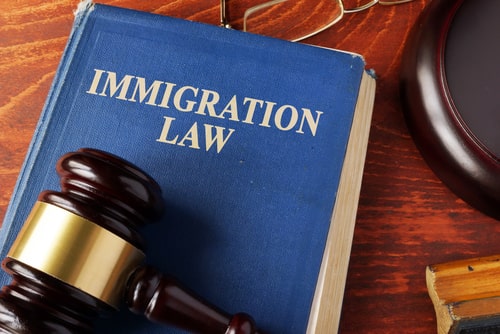Navigating the H-1B Visa Process in Texas
 The H-1B visa is an invaluable tool for those abroad who wish to work in the United States. However, navigating the H-1B application process can be extraordinarily complex and competitive. A Texas lawyer can help you understand key considerations, rules, and best practices when pursuing an H-1B visa, specifically in Texas. Whether an employer is looking to fill a specialty role or a worker is seeking the chance to use their talents in the United States, understanding the intricacies of the H-1B from a Texas legal perspective is critical.
The H-1B visa is an invaluable tool for those abroad who wish to work in the United States. However, navigating the H-1B application process can be extraordinarily complex and competitive. A Texas lawyer can help you understand key considerations, rules, and best practices when pursuing an H-1B visa, specifically in Texas. Whether an employer is looking to fill a specialty role or a worker is seeking the chance to use their talents in the United States, understanding the intricacies of the H-1B from a Texas legal perspective is critical.
Understanding H-1B Requirements and Quotas
Before applying for an H-1B, it is critical to understand the program’s requirements and limitations. An H-1B petition must demonstrate that:
- The offered position qualifies as a specialty occupation
- The foreign worker holds at least a bachelor’s degree or equivalent experience related to the position
- The company will pay the prevailing wage for the occupational field
In addition, there are strict quotas on the number of available H-1B visas. Only 85,000 new H-1B visas are issued each fiscal year, with 20,000 set aside for those with US advanced degrees. Competition is very high for the quota slots, so it is highly recommended that you work with an experienced immigration attorney.
Filing Timelines and Procedures
H-1B petitions cannot be filed more than six months before the requested employment start date. The filing timeline depends on whether the beneficiary is:
- Inside the US and seeking a change of status – file between April 1 and June 30 for an October 1 start date
- Outside the US – file at any time, but employment can only begin on or after October 1 if subject to the quota
The lawyer can prepare and submit the H-1B petition to US Citizenship and Immigration Services (USCIS), including documentation about the offered position, the beneficiary’s qualifications, and details about the sponsoring employer.
Options After Reaching Quota
Given the high demand, the annual H-1B quota is often met within days of the filing period opening. You and your attorney can discuss alternatives if a petition does not make the quota, such as:
- Refiling in the next fiscal year
- Exploring other visa types like the TN or E3
- Transferring from another H-1B employer exempt from the quote
H-1B Extensions and Other Considerations
Initial H-1B approvals are granted for up to 3 years, with the option to extend for another three years. Certain H-1B workers, having begun their green card process, can also keep extending beyond the 6-year maximum. When representing Texas employers with H-1B employees, your lawyer can handle all needed extensions and amendments. H-1B workers’ immigration status is dependent on remaining employed with the sponsoring employer. A lawyer can counsel employers and employees on H-1B compliance issues during terminations or corporate changes. Navigating the complex H-1B landscape can be challenging, but with legal representation, it can be easier to go through the steps.
Contact a Dallas, TX Immigration Lawyer
The H-1B visa can open doors to exciting career opportunities. By understanding the requirements, application process, and Texas-specific considerations, you can confidently navigate the H-1B landscape. Remember to work closely with your employer and a Plano, TX immigration attorney to ensure a potentially smoother journey. Call Law Office of Jae Lee at 214-295-3014 for a free consultation.






